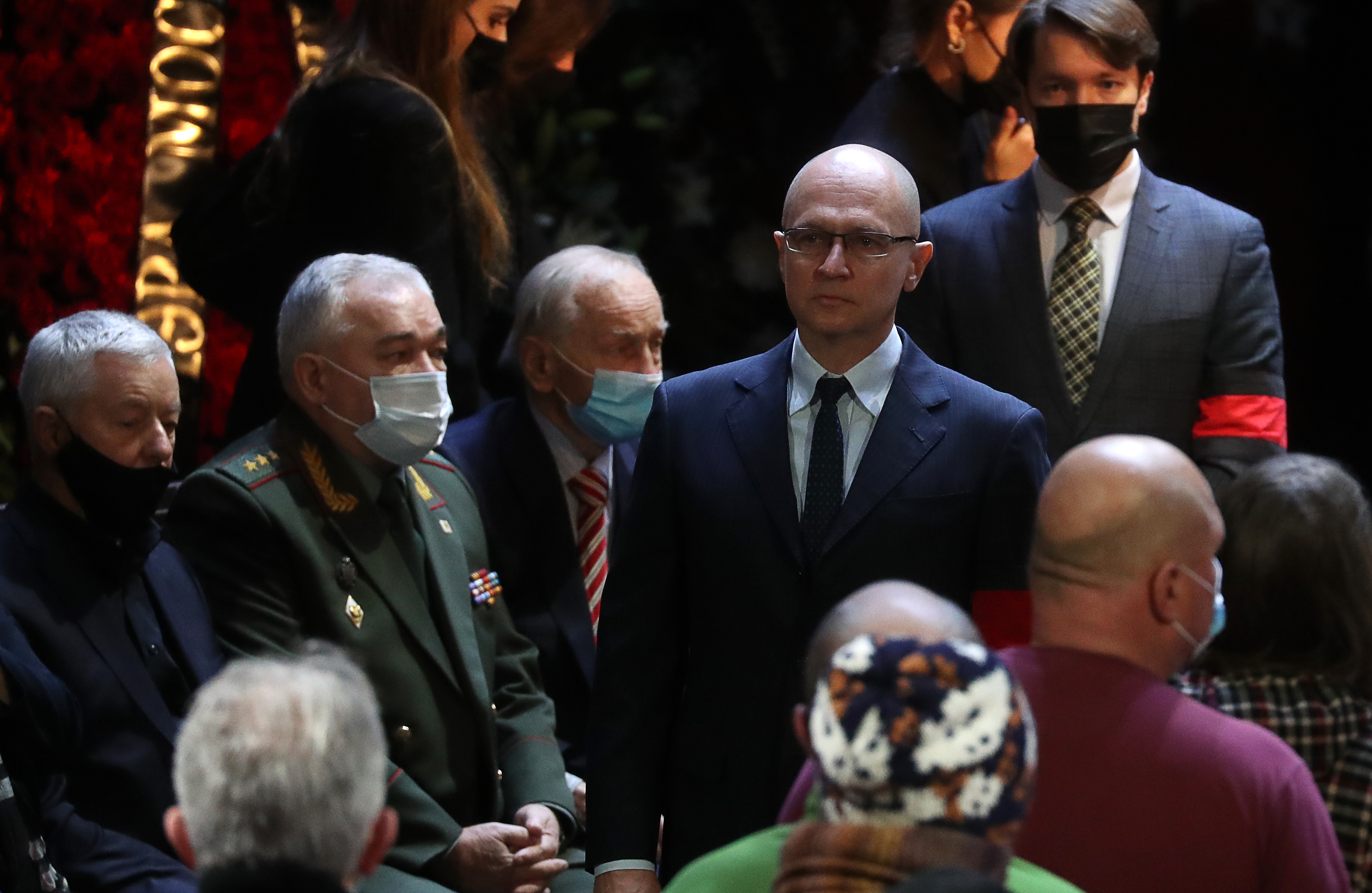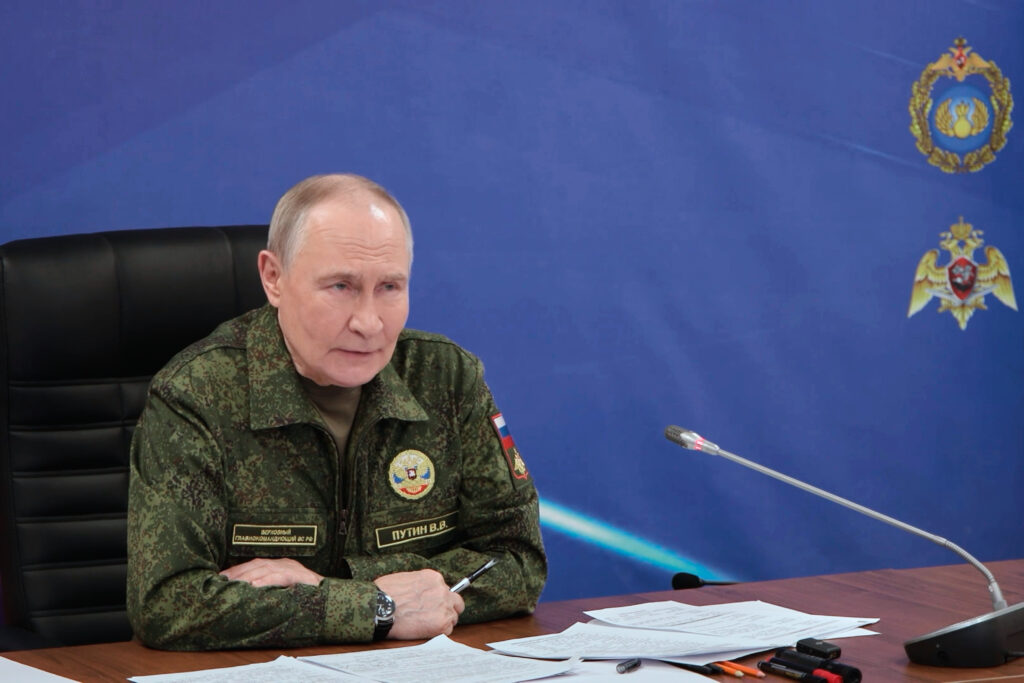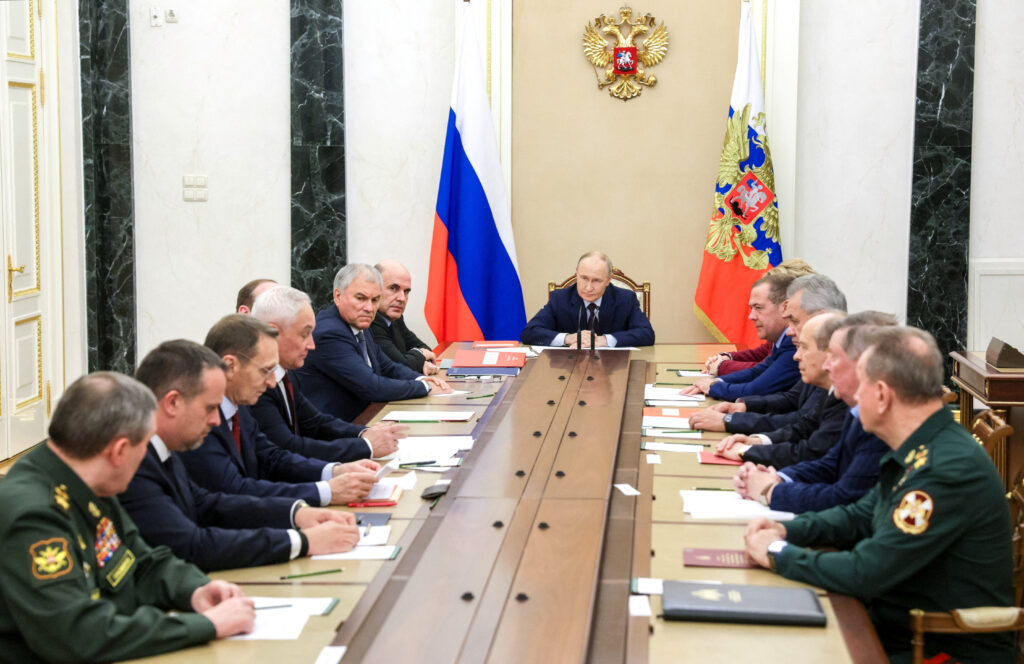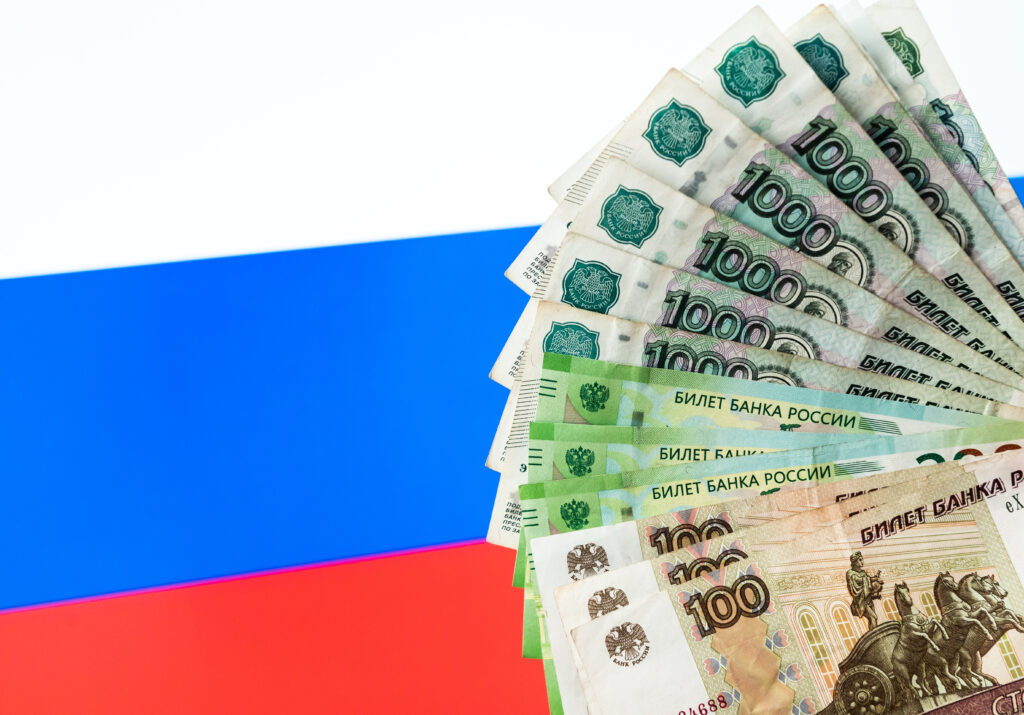During first 10 months of the war with Ukraine, the First Deputy Chief of Staff of the Presidential Administration of Russia, Sergei Kiriyenko, has had to radically overhaul his day job. At the beginning of the Russian invasion in February, Kiriyenko and his team in the political section actively supported the war and joined the agenda of annexing Ukrainian territories, counting on an early victory. His officials and political technologists became the organizers of «plebiscites» and established the flow of personnel to the self-proclaimed DPR and LPR, as well as the settlements of Kherson and Zaporozhye — all regions occupied by the Russian army.
After the military began to suffer defeats, and the prospects for staying in the «new territories» became vague, Kiriyenko’s political bloc was able to quickly switch to new areas of work. Now they have focused on educating the younger generation of Russians at schools and universities. Judging by his team’s capacity to switch agendas from unpopular topics, it is unclear how long this latest focus will last.
Political technologists have to adapt
At the beginning of the 2000s, the creator of the Russian political system in its current form and shape, the first deputy head of the presidential administration, Vladislav Surkov, turned what is now Kiriyenko’s team into the main and most famous element of the Presidential Administration. His subordinates bargained with federal and regional political players — who back then could not be ignored altogether. His team rallied round the idea of opposing the «orange threat» and working with young people. Surkov was able to prove to Vladimir Putin that he and his associates guarantee the stability of the country.
Surkov’s system gradually became tougher; there was less room for bargaining with political players. Both the federals and the regionals had to demonstrate ever greater loyalty to the Kremlin under the threat of being enrolled in list of «non-constructive opposition» who were at best not allowed to take part in the elections. Surkov’s system, however, did not prevent the mass protests of 2011−2012 and he was retired as chief manager of domestic politics. Surkov’s successors — Vyacheslav Volodin and Sergei Kiriyenko worked mainly according to his patterns, although they introduced elements of their own design. Volodin tried to build a «People’s Front» on the East German model and demanded even greater loyalty from the parliamentary opposition, attracting it with governorships and guarantees of passage to the regional parliaments and the State Duma. Kiriyenko focused on personnel policy in the governor’s corps, organizing schools and contests (like «Leaders of Russia») for officials, honed corporate mobilization in order to show «proper» numbers in the elections.
After the outbreak of the war, all this became less relevant. Already in the spring, it was clear that if nothing was changed, then the Kremlin’s political bloc would have to keep an eye on formerly loyal politicians. The ambitious Kiriyenko was not satisfied with this situation, and he found a way out of it.
Head of Donbass
At that time, despite the failed blitzkrieg, few in the Russian elite doubted that the Russian army would be able to hold the occupied territories and completely occupy the Donetsk region. This was considered the minimum program, and the capture of Kyiv and other Ukrainian regions was considered the maximum program. In accordance with these calculations, Kiriyenko rebuilt the political bloc on a military footing. His subordinates began to prepare «plebiscites on the annexation» of the occupied territories to Russia, as well as to send personnel troops there composed of students of the «school of governors» and winners of the «Leaders of Russia» competition. Sergei Kiriyenko tried to predict what would become important for Vladimir Putin after the victorious end of hostilities, as the Russian leadership then hoped. The bet on the president’s new toy was understandable; Kiriyenko thought the president would be fascinated by the annexation and Russification of the regions — he almost guessed right. Last December, Putin called the annexation of «new territories» as one of the positive results of the still unfinished war.
Kiriyenko carried out a simple but effective manipulation; he added the Donbas component to all his projects (elections, competitions and schools). Yet he did not take into account one thing — the successful actions of the Armed Forces of Ukraine and the state of the Russian army. In September, the Ukrainian army carried out a successful offensive in the Kharkiv region, after which the pro-Russian administration went into exile. «Referenda,» due to the armed forces of the Russian Federation stalling in the Donetsk region, had to be constantly postponed. After the Kharkiv counter-offensive, these «plebiscites» were hastily carried out in cooperation with the military and special services — Putin considered that Ukraine would not dare to attack the «new territories of Russia». Thus, Kiriyenko’s subordinates turned out to be not the only ones getting it wrong; in the end, the «plebiscites» and the voting results did not aspire to any credibility whatsoever. They looked like the voting results in Chechnya, where the Kremlin’s political bloc is not involved in elections at all. In November, Russian troops left Kherson, and the occupation administration again went into exile. The head of the pro-Russian government, Sergei Eliseev, fully returned to his former place of work in the Kaliningrad region. How relevant in such conditions is the supply of personnel in the expectation that they will become the frontmen of «restoration» and Russification is a big question.
The war continues to excite Putin; he is completely drawn into it, but it is already clear that not only the seizure of new territories, but also the retention of those already occupied are under a big question. Kiriyenko’s bet, which seemed almost a win-win in the spring, did not play out. For the second time in a year, the Kremlin’s political bloc faced vague prospects.
Educator and ideologue
However, Kiriyenko again reinvents the functionality of the sector subordinate to him. Next up, he focused on the previously secondary function of the bloc — work with youth and enlightenment, or rather, propaganda under its guise. Under Surkov, youth projects also existed: for example, the youth movements «Nashi» and «Young Guard». However, they were focused on working with pro-government activists who were expected to be able to resist major opposition rallies on the streets if they happened. After tens of thousands of protesters on rallies in 2011−2012, it became obvious that the Surkov youth did not oppose them in any way (and they would not be able to oppose them). Surkov’s replacement, Volodin, did not get into youth politics; he tried to gather state employees and activists loyal to the government under the umbrella of the «People’s Front». Sergei Kiriyenko, as part of the «Leaders of Russia» competition, worked with young careerists, forming a class of technocratic bureaucracy loyal to the government. Putin liked these experiments; he met with the graduates of the competition, sent congratulations to the finalists. Kiriyenko could not fail to notice the president’s love for communicating with schoolchildren and children in general. Under his political supervision, there were more such meetings; then the first deputy head of the Presidential Administration decided to put the children’s topic on stream. In the spring of 2022, information began to appear in the media that the Kremlin planned to create a new pioneer movement: apparently, this decision was made before the war. In the summer, rumors about a new youth movement subsided. After all, back then the topic of developing new territories seemed more promising. After the Kharkiv and Kherson retreats, the «pioneers» returned to the agenda again; the Presidential Administration and the Ministry of Education held a congress of the new «Movement of the First». Putin himself became the chairman of its supervisory board.
In 2019, Kiriyenko took the «Knowledge» society under his wing and headed its supervisory board. This structure was created back in Soviet times to conduct educational ideological lectures, and since the 1990s, it has slowly withered and died. The revival of «Knowledge» is also a nod to the president. In recent years, Putin has been clearly passionate about education; he continually cites historical examples in his speeches, conducts lessons for schoolchildren, and writes pseudoscientific articles. Now the society, led by the young careerist Maxim Dreval, together with the political block of the Presidential Administration and the Ministry of Education, is developing a new ideological course for students, «Foundations of Russian statehood».
The Presidential Administration is preparing a new «scientific communism» for young people — a combination of history, political science and a five-minute talks about current events in the world (naturally, served in the way needed by the Kremlin) and at the same time plans to conduct a kind of licensing of loyal teachers. The disloyal are unlikely to agree to conduct an extremely ideologized subject on the verge of propaganda.
By paying attention to the educational process and working with young people, Kiriyenko solves two problems. First, he maintains ideological work. Secondly, he finds a use for himself and his subordinates that is relevant to Putin and remains on the presidential agenda. As a true leader of the Komsomol in late Soviet times, Kiriyenko is flexible. Komsomol members in those years could fight non-conformists, or they could welcome the same non-conformists in clubs and engage in cooperative business, whatever the authorities wanted. The curator of the political bloc behaves in the same way — he guesses (or at least tries to guess) the mood of Putin and immediately adjusts his work and the work of his subordinates to suit them. The first deputy head of the Presidential Administration is ready to adapt the main projects to the spirit of the times, as was the case with the delegation of the «Leaders of Russia» to the Donbass, or to turn reserve projects into main ones, as is now happening with education and enlightenment. Kiriyenko is a real chameleon of the Russian vertical of power: a former liberal who shied away from public attention now makes ultra-patriotic speeches and is preparing to build a new ideology for young people. This official does not want to lose his influence and is constantly modifying the direction of his work so that, God forbid, he does not fall out of the focus of Putin’s attention, trying with all his might to please the president and entertain him. It is likely that we will see more than once the amazing transformations and maneuvers of the Kremlin’s political bloc in accordance with the changing situation.










